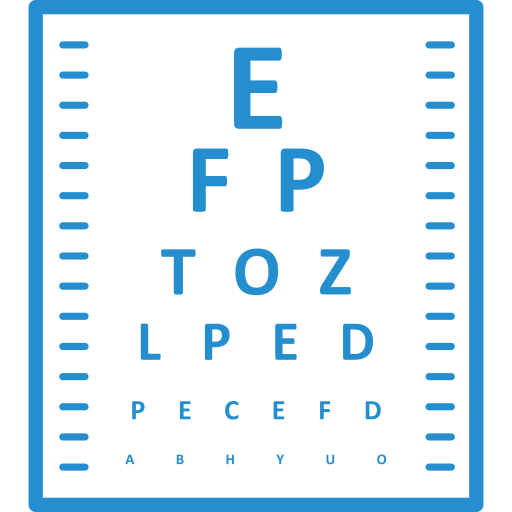
Providing Health Insurance in Naples, Port Charlotte, and Fort Meyers, FL
Staying Healthy Together
Choosing the right health insurance plan can be confusing. With the expert guidance of SWFL Insurance, our dedicated agents can help make the process simple. By providing quality, affordable plans, we’re here to help you and your family have access to the care you need.
With decades of experience, our highly trained team of seasoned insurance professionals is committed to helping you compare your policy options to find the one that is best for you.
To get started, call us at (800) 829-5270 or click here to get a quote.
Important Notice
A Special Open Enrollment Period for Marketplace coverage with Florida Blue runs Feb 15th though May 15th. Call (800) 829-5270 now to see if you qualify!
Individual Health Under 65
For you and your family, health insurance equals better wellness and peace of mind. It helps you pay for routine, critical and emergency medical care costs, and makes your out-of-pocket burden for this care much more affordable. There are numerous health plan options available from countless insurers in Florida. Our agents are committed to working with you to find the best plan.
.png)
Individual Health Under 65
Quote Form
Learn More
Medicare
If you qualify for Medicare, then you are about to become a member of one of the largest health insurance programs in the United States. Seniors citizens not only can enroll in the government’s Original Medicare program, but also can benefit from numerous private policy options like Medicare Advantage, Medicare Supplemental (Medigap) plans and Part D Prescription drug benefits. What our team does best is to help you choose the combination of policies that give you the greatest access to the care you need.

Medicare
Quote Form
Learn More
Long-Term Care
If you begin to have a tough time performing tasks of daily living such as bathing, dressing, eating or going to the bathroom, then you might begin to need care in a nursing home, adult daycare center or from a home health provider. Long-term care insurance is designed to help you pay for nursing home or in-home care expenses not paid by your health insurance. With a long-term care plan, you can customize your benefits to keep you safe, financially secure and comfortable even with the challenges of age.

Long-Term Care
Quote Form
Learn More
Critical Illness
If an employee faces a sudden illness that causes them to be admitted to hospital, these plans might pay for outstanding health care costs like copayments and deductibles, and can even cover living expenses (rent, utilities, etc.) that occur. These plans can help businesses large and small. Most are guaranteed acceptance for employees and their families and offer easy paycheck deduction options. They are easy to add into your full employee benefits portfolio.
.png)
Critical Illness
Quote Form
Learn More
Vision
Routine vision care is usually insured separately from your regular health insurance. However, vision insurance can make the cost of this care and the relate treatments much more affordable, particularly if you need frequent or specialty vision exams. However, you always need routine vision care, too, and vision insurance is a great benefit to have. Consider it an easily affordable way to get sharp vision.

Vision
Quote Form
Learn More
Dental
It is a fact that regular dental care and good hygiene can make you much healthier overall and even reduce your risk of certain illnesses. Dental insurance can enable you to receive both routine cleanings and specialty treatments like fillings, extractions and orthodontics. These plans are very affordable for any family, and they actively incentivize customers to receive regular dental care. That is why buying one is one of the best investments you can make for your health.
.png)
Dental
Quote Form
Learn More
Common Health Insurance Questions
The average American spends more than $10,000 per year for medical care. That’s a cost that no family should have to worry about affording. The right health insurance plan will pay for some or all the costs of an insured individual’s health care and reduce the financial burden on the policyholder.
Your benefits can pay for numerous types of medical needs including:
- Physician services
- Inpatient hospital treatment and surgeries
- Laboratory & imaging tests
- Vaccinations and health screenings
- Other clinical care & rehabilitation costs
- Prescription drugs
Many plans also offer vision and dental coverage for both adults and children.
There are many types of plans offered by numerous major insurers. These include:
- Health Maintenance Organizations (HMOs)
- Preferred Provider Organizations (PPOs)
- Point-of-Service Plans (POS)
- Fee-for-Service Plans (Traditional Indemnity)
- Group Health Benefits
- Supplemental Health Plan Benefits
- Catastrophic Plans
- Short-Term Benefits
Plans will lay out specific terms and conditions that define when and how much they will pay for different services. When you visit a doctor or physician network that accepts your insurance plan, your provider will first bill your insurer for the costs of your care. After the insurer pays its share, you will pay for any outstanding costs.
Some of your out-of-pocket obligations might include:
- Deductibles
- Copayments
- Coinsurance
Different services have different cost-sharing requirements. Plus, in many cases, you can receive covered care even if you have not paid off the value of your deductible. You can generally receive certain preventive care, such as vaccines, at no cost.
One individual only needs one health insurance plan. However, some individuals choose to enhance their health insurance policy by buying a supplemental expenses plan. This coverage can pay for costs beyond what your standard medical plan will pay.
Additionally, many families choose to enroll in group health plans, under which all family members can receive coverage. It is often cheaper to enroll multiple family members in a group plan, and all members of your household will have the same general benefits.
All health insurance premiums will vary, however, your insurer cannot charge you more or deny your application because you have a pre-existing condition.
Individuals who choose to enroll in a health plan that meet federal Affordable Care Act (ACA) standards might also qualify for tax credits, reduced premiums and lowered deductibles. You must meet certain income requirements to qualify, however.
Most health insurers only allow new applicants to buy plans during an annual open enrollment period. Most plans last from around Nov. 1 – Dec. 15 each year, and new plans usually take effect on January 1st.
Some people qualify to enroll outside open enrollment if they have qualifying life events. Getting married, losing employer-provided benefits and other changes might grant you this special enrollment period (SEP). Speak to one of our agents to learn more about your qualifications for enrolling.
|